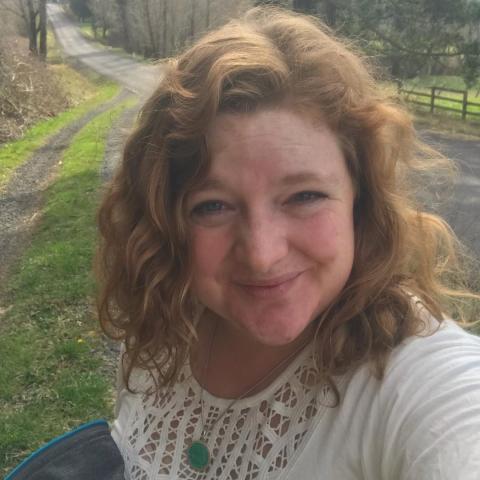January 21, 2024 - 09:28

I learned how to learn, how to write, and how to teach from Paul Grobstein. During my time in graduate school, I taught Creative Writing classes at a variety of levels from Introductory through Undergraduate Dissertation. I immediately found that I preferred to teach introductory classes, where I could focus on teaching students how to learn in the very same way that I had learned to learn rather than trying to identify talented individuals. My pedagogy is designed to help students develop and evolve as writers regardless of their innate talent or potential to become an author. I tell my students that I understand a writer as someone who writes. Next, I tell them that they can all become writers by producing writing regularly for my class. Finally, I tell them that they can become better writers if they reflect on the strengths and weaknesses of their writing and revise using the feedback from myself and their peers. I believe that self reflection is an essential component of learning, because it lets the students identify what they have learned for themselves. This fosters a habit of self-assessment that is very valuable to writers. So my classes utilize frequent creative writing assignments sandwiched with revision and self reflection. My guidelines for peer feedback actively discourage using the word talent, because it is not specific and therefore not helpful to the writer. Furthermore, talent is a property of the writer not the writing. I think we can teach Creative Writing in rigorous and thoughtful ways without recourse to the concept of talent.
 This year I am looking forward to teaching Gretchen Lida’s essay, “The Case for Mediocrity,” to help my students think more about their progress and less about talent. Lida sets up a beautiful continuum between people who are naturally talented and people who are interested in growth for themselves. She describes the pleasure of learning to grow, especially learning slowly and incrementally. Lida writes that “when you start off crappy at something, doing the work and working through the failure are constant companions on your journey—you’re not just practiced at dealing with them, they make your improvements all the more sweeter.”[1] She highlights the power of contrast and persistence; here, getting things progressively less wrong is a source of celebration. She is showing and telling the ways ins itch self-reflection can power persistence in the face of challenges. I love that she moves through examples in arts, sport, and writing, because it maximizes the chance of connecting to my students’ experiences inside and outside of academics. Her essay offers my students a concise narrative of Grobstein’s “getting things progressively less wrong,” from a learner’s point of view. Lida advocates for practice and progress as the fundamental elements of learning.
This year I am looking forward to teaching Gretchen Lida’s essay, “The Case for Mediocrity,” to help my students think more about their progress and less about talent. Lida sets up a beautiful continuum between people who are naturally talented and people who are interested in growth for themselves. She describes the pleasure of learning to grow, especially learning slowly and incrementally. Lida writes that “when you start off crappy at something, doing the work and working through the failure are constant companions on your journey—you’re not just practiced at dealing with them, they make your improvements all the more sweeter.”[1] She highlights the power of contrast and persistence; here, getting things progressively less wrong is a source of celebration. She is showing and telling the ways ins itch self-reflection can power persistence in the face of challenges. I love that she moves through examples in arts, sport, and writing, because it maximizes the chance of connecting to my students’ experiences inside and outside of academics. Her essay offers my students a concise narrative of Grobstein’s “getting things progressively less wrong,” from a learner’s point of view. Lida advocates for practice and progress as the fundamental elements of learning.
Grobstein, Lida, and myself focus on the role of progress in learning. Our pedagogies align with what psychologist Carol Dweck has defined as the growth mindset. Dweck defines the growth mindset as the belief that “although people may differ in every which way—in their initial talents and aptitudes, interests, or temperaments—everyone can change and grow through application and experience.”[2] I find the growth mindset deeply empowering as a teacher, because it foregrounds the role of effort through experience and backgrounds the role of talent. Furthermore, I appreciate that she acknowledges the diversity of students in the classroom in a neutral way. There is no room for the deficit model and no shaming the neurodivergent in the growth mindset. This is an inclusive approach to the psychology of learning and teaching. The growth mindset holds room for me to be surprised by my students and the ways in which they grow over the course of the semester.
[2] Dweck, Carol S.. Mindset. Kindle Edition., Random House Publishing Group. 2016. p. 6.
